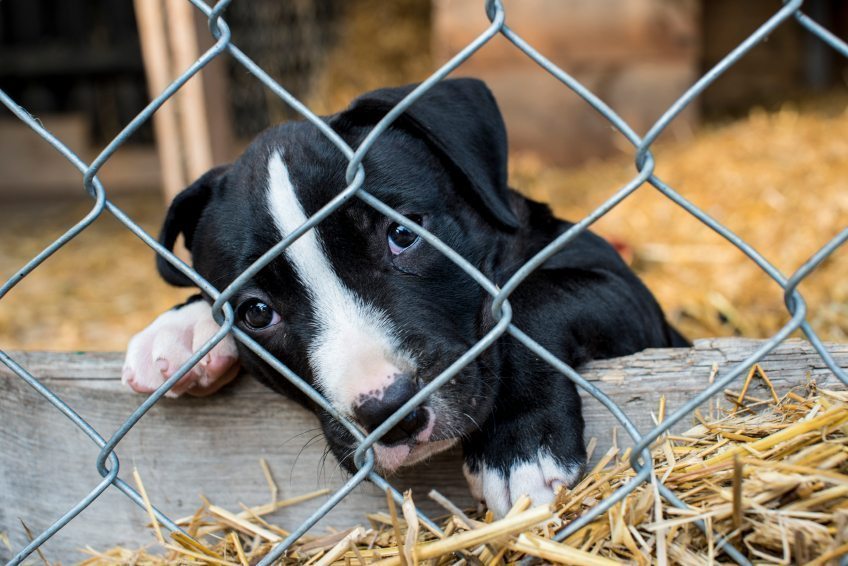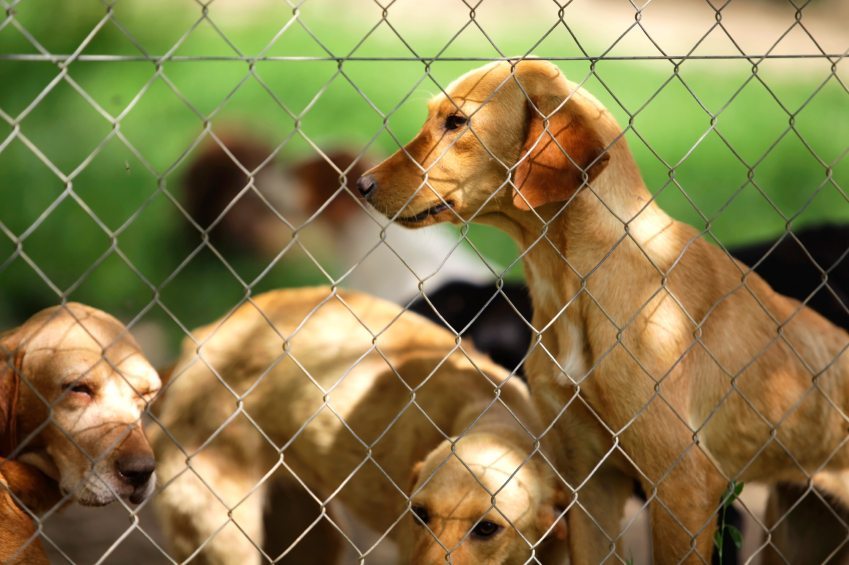
The market for purebred and other types of dogs in America is huge and so is the financial reward for being able to meet these demands. Many puppy mills are regulated by the United States Department of Agriculture, 1,924 licensed Class A and B to be exact, but most puppy mills aren’t so strictly regulated and put profit over the health of the dogs they breed. The end result is that when you go to purchase your new dog, you don’t know if they have been subjected to the horrors of an unlicensed puppy mill and you can never been sure that their lineage is as pure as the papers say it is.
Over THREE million dogs and cats are euthanized every year
Three million. The licensed puppy mills alone create an estimated 1,022,740 puppies each year for the pet trade. Many, many more are bred in unlicensed puppy mills. So, considering you options, where do you go to get a purebred dog and to ensure that they didn’t come from unscrupulous puppy mills? About 25% of the dogs at your local animal shelter are purebred. Adoption should always be your first option. If you can’t find the dog you are looking for at the animal shelter, you can always try a local breed rescue group. If you still cannot find that one dog that you want, there is always the option of finding a responsible breeder. Always meet the breeder at their breeding site. You want to see the dog’s mother and the conditions the dogs are born and raised in. If you either adopt or purchase from a specialty breeder, you’ll be saving an animal’s life by providing it a good and loving home.
Puppy Mills often sell through flea markets
Flea Markets attract just about anyone with a product. Since most transactions involving dogs over the internet are heavily regulated, those who deal in selling puppies bred in puppy mills have simply changed tactics and sell through flea markets or any other unregulated outlet such as Craigslist, despite their guidelines. Puppy mill operators are attracted to the flea market because it offers a quick way to offload dogs without government oversight because the USDA does not intervene in face-to-face sales. Again, these breeders place profits over the health of the dogs they sell. To combat this, many states are placing restrictions on open-air sales of pets at these public locations.

Dogs purchased at puppy mills are unhealthy
I cannot stress this point hard enough. These dogs are raised without proper veterinary care and are more likely to have diseases that are transferrable to humans and other animals such as the parvovirus. The dogs receive low quality food and shelter and in most cases they are the result of inbreeding, which throws a whole slew of genetic problems into the mix. Many of the health issues include:
- Eye problems
- Deafness
- Endocrine disorders
- Blood disorders
- Epilepsy
- Kidney disease
- Heart disease
- Heartworm
- Kennel cough
- Pneumonia
- Musculoskeletal disorders
- Upper respiratory infections
- Fleas and ticks
Despite the fact that the dog may be unhealthy, the dog can also develop behavioral problems as well. Buying a dog is a hard decision, but adoption from an animal shelter or rescue group should be an easy one. The more you know about the inhumane treatment of dogs in unlicensed puppy mills, the better informed you are about where you get your next pet.
Photo Credit: istockphoto.com









